
艾伦?图灵:他的工作与影响
正版 艾伦?图灵:他的工作与影响(上下)
¥ 39.2 4.0折 ¥ 98 全新
库存3件
北京房山
认证卖家担保交易快速发货售后保障
作者[英]库珀(Cooper);[荷]莱文(Leeuwen)
出版社哈尔滨工业大学出版社
出版时间2016-04
版次1
装帧平装
货号E
上书时间2024-11-10
- 在售商品 暂无
- 平均发货时间 15小时
- 好评率 暂无
- 店主推荐
- 最新上架
商品详情
- 品相描述:全新
- 正版库存书 非二手
- 商品描述
- E32-21
图书标准信息
- 作者 [英]库珀(Cooper);[荷]莱文(Leeuwen)
- 出版社 哈尔滨工业大学出版社
- 出版时间 2016-04
- 版次 1
- ISBN 9787560357669
- 定价 98.00元
- 装帧 平装
- 开本 16开
- 纸张 胶版纸
- 页数 914页
- 字数 815千字
- 【目录】
-
List of Contributors Introduction Part 1 How Do We Compute? What Can We Prove? 1955 Alan Mathison Turing by Max Newman(Bibliographic Memoirs of the Fellows of the Royal Society, 1 (Nov.), 253—263) Andrew Hodges contributes—A Comment on Newman‘s Biographical Memoir Biographical Memoir 1936—7 On Computable Numbers, with an Application to the Entscheidungsproblem(Proc.Lond.Math.Soc.(2) 42, 230—265) 1937—A Correction (ibid:43,544—546) Christos Papadimitriou on—Alan and I Turing texts Stephen Wolfram on— The Importance of Universal Computation Martin Davis illuminates— Three Proofs of the Unsolvability of the Entscheidungsproblem Samson Abramsky detects— Two Puzzles About Computation Paul Vitanyi illustrates the importance of— Turing Machines and Understanding Computational Complexity Gregory Chaitin traces the path— From the Halting Problem to the Halting Probability Robert Irving Soare expands on— Turing and the Art of Classical Computability Rainer Glaschick takes us on a trip back to— Turing Machines in Munster From K.Vela Velupillai— Refiections on Wittgenstein‘s Debates with Turing during his Lectures on the Foundations of Mathematics Jan van Leeuwen and Jiff Wiedermann on— The Computational Power of Turing‘s Non—Terminating Circular a—Machines Meurig Beynon puts an empirical slant on— Turing‘s Approach to Modelling States of Mind Henk Barendregt and Antonio Raffone explore— Conscious Cognition as a Discrete, Deterministic and Universal Turing Machine Process Aaron Sloman develops a distinctive view of— Virtual Machinery and Evolution of Mind (Part 1) Artur Ekert on the physical reality of— √NOT Cristian Calude, Ludwig Staiger and Michael Stay on— Halting and Non—Halting Turing Computations Philip Welch leads us— Toward the Unknown Region: On Computing Infinite Numbers 1937 On Computable Numbers, with an Application to the Entscheidungsproblem by A.M.Turing—Review by:Alonzo Church(J.Symb.Log.2, 42) Andrew Hodges finds significance in — Church‘s Review of Computable Numbers 1937 Computability and λ—Definability(J.Symb.Log.2, 153—63) Henk Barendregt, Giulio Manzonetto and Rinus Plasmeijer trace through to today— The Imperative and Functional Programming Paradigm Turing text 1937 The p—Function in λ—K Conversion(J.Symb.Log.2, 164) Henk Barendregt and Giulio Manzonetto point out the subtleties of— Turing‘s Contributions to Lambda Calculus Turing text 1939 Systems ofLogic Based on Ordinals(Proc.Lond.Math.Soc.(2) 45, 161—228) Solomon Feferman returns to— Turing‘s Thesis: Ordinal Logics and Oracle Computability Turing text Michael Rathjen looks at— Turing‘s‘Oracle‘ in Proof Theory Philip Welch takes a set—theoretical view of— Truth and Turing Alastair Abbott, Cristian Calude and Karl Svozil describe— A Quantum Random Oracle 1948 PracticaIForms ofType Theory(J.Symb.Log.13, 80—94) Some background remarks from Robin Gandy‘s— Preface Turing text 1942 The use of Dots as Brackets in Church‘s System(J.Symb.Log.7, 146—156) Lance Fortnow discovers — Turing‘s Dots Turing text 1944 The Reform of Mathematical Notation and Phraseology Stephen Wolfram connects— Computation, Mathematical Notation and Linguistics Turing text Juliet Floyd explores— Turing, Wittgenstein and Types: Philosophical Aspects of Turing‘s ‘The Reform of Mathematical Notation and Phraseology‘ (1944—5) Part 2 Hiding and Unhiding Information: Cryptology, Complexity and Number Theory 1935 On the Gaussian error function Sandy L.Zabell delivers an authoritative guide to— Alan Turing and the Central Limit Theorem Turing‘s ‘Preface‘ (1935) to ‘On the Gaussian error function‘ 1953 Some Calculations of the Riemann Zeta function(Proc.Lond.Math.Soc.(3) 3, 99—117) 1952—3 On a Theorem of Littlewood Dennis Hejhal and Andrew Odlyzko take an in—depth look at— Alan Turing and the Riemann Zeta Function And Dennis Hejhal adds— A Few Comments About Turing‘s Method Turing text On a Theorem of Littlewood (S.Skewes and A.M.Turing) 1954 Solvable and Unsolvable Problems(Science News 31, 7—23) Gregory Chaitin recommends— Turing‘s Small Gem Turing text Wilfried Sieg focuses on— Normal Forms for Puzzles: A Variant of Turing‘s Thesis K.Vela Velupillai connects— Turing on ‘Solvable and Unsolvable Problems‘ and Simon on ‘Human Problem Solving‘ 1950 The Word Problem in Semi—Groups with Cancellation(Annals of Mathematics, 52 (2), 491—505) Gregory Chaitin on— Finding the Halting Problem and the Halting Probability in Traditional Mathematics While John L.Britton gives us a brief— Introduction to the mathematics Turing text On Permutation Groups John Leslie Britton‘s informative — Introduction Turing text 1948 Rounding—off Errors in Matrix Processes(Quart.J.Mech.Appl.Math.1, 287—308) Lenore Blum brings into view— Alan Turing and the Other Theory of Computation Turing text A Note on Normal Numbers Andrew Hodges on an interesting connection between— Computable Numbers and Normal Numbers Turing text Veronica Becher takes a closer look at — Turing‘s Note on Normal Numbers 1940 Turing‘s Treatise on the Erugma (Prof‘s Book) Frode Weierud on Alan Turing, Dilly Knox, Bayesian statistics,decoding machines and— Prof‘s Book: Seen in the Light of Cryptologic History Excerpts from the ‘Enigma Paper‘ Tony Sale delves into the cryptographic background to— Alan Turing, the Enigma and the Bombe Klaus Schmeh looks at— Why Turing cracked the Enigma and the Germans did not 1944 Speech System ‘Delilah‘—Report on Progress(A.M.Turing, 6 June, National Archives, box HW 62/6) Andrew Hodges sets the scene for— The Secrets of Hanslope Park 1944—1945 Craig Bauer presents— Alan Turing and Voice Encryption: A Play in Three Acts John Harper reports on the— Delilah Rebuild Project 1949 Checking a Large Routine (Paper, EDSAC Inaugural Conference, 24 June. In: Report of a Conference on High Speed Automatic Calculating Machines, 67—69) Cliff B.Jones gives a modern assessment of— Turing‘s ‘Checking a Large Routine‘ Turing text 1951 Excerpt from: Programmer‘s Handbook for the Manchester Electronic Computer Mark 2 Local Programming Methods and Conventions(Paper read at the Inaugural Conference for the Manchester University Computer, July 1951) Toby Howard describes— Turing‘s Contributions to the Early Manchester Computers Excerpt from: Programmer‘s Handbook for the Manchester Electronic Computer Mark 2 …… Part 3 Building a Brain: Intelligent Machines,Practice and Theory Part 4 The Mathematics of Emergence: The Mysteries of Morphogenesis Afterword Bibliography Index
作者介绍
作者:(英国)库珀(Cooper S.B.) (荷兰)莱文(Leeuwen J.V.)
序言
点击展开
点击收起
— 没有更多了 —


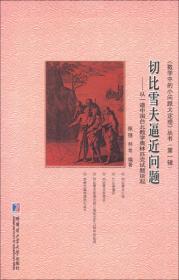
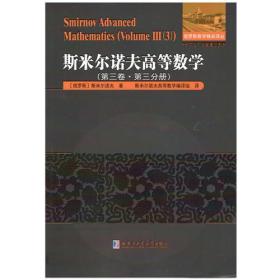

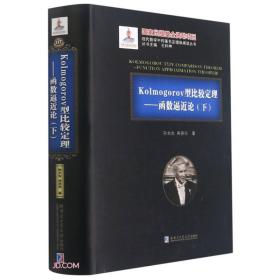
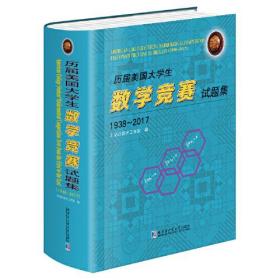
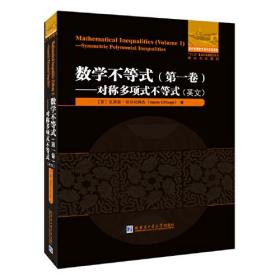

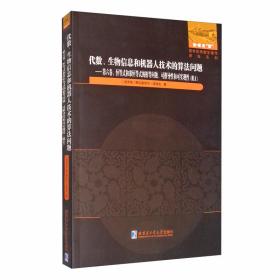
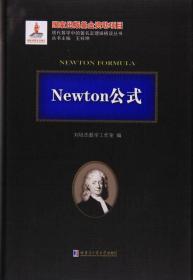


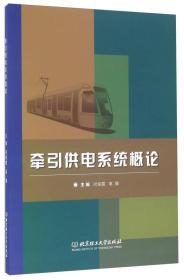

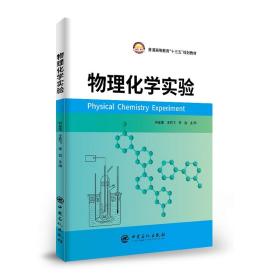
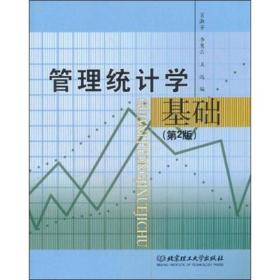

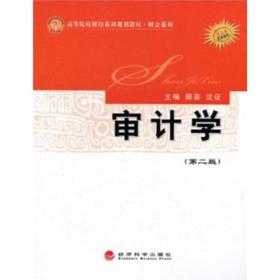


以下为对购买帮助不大的评价